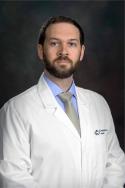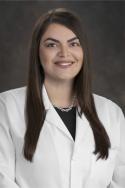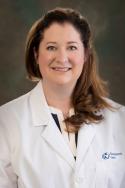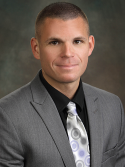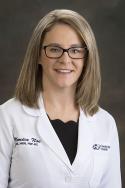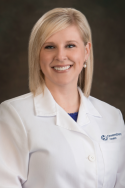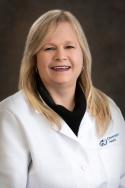Chronic Obstructive Pulmonary Disease (COPD)
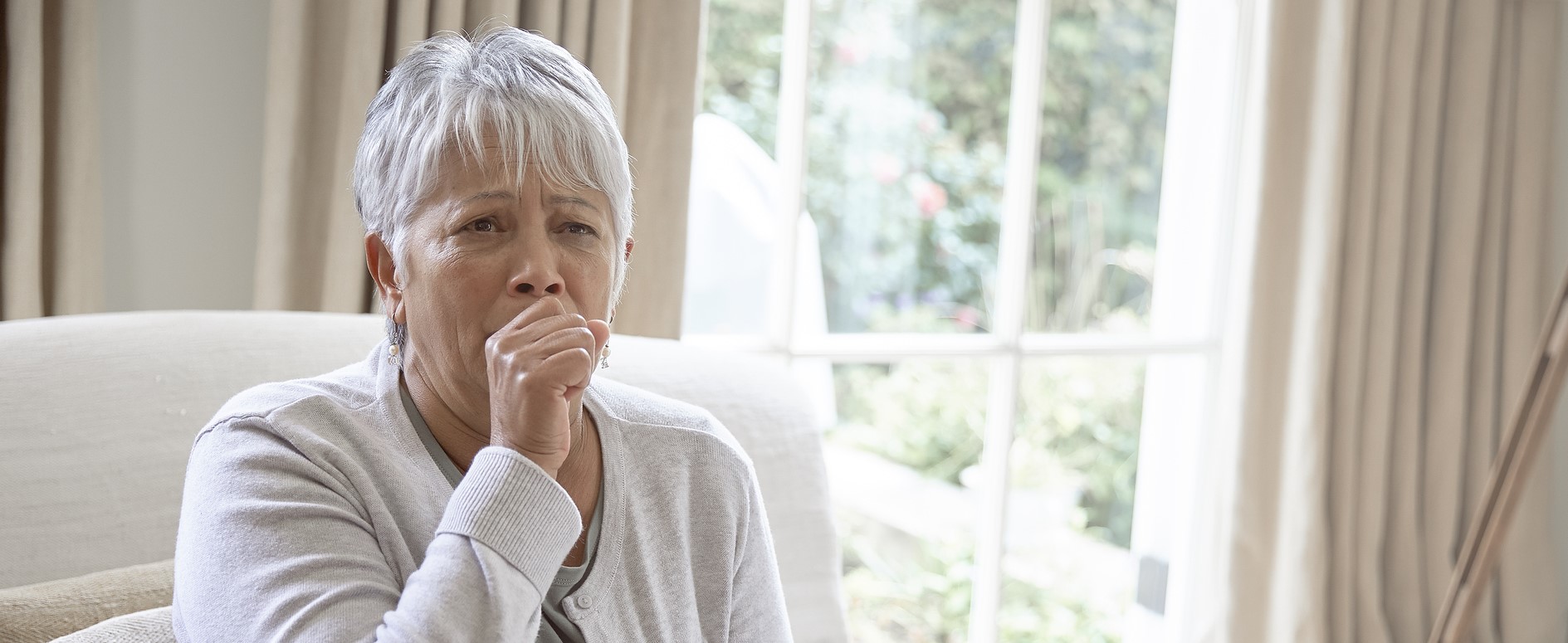
Contact COPD Coordinators
Kristen McCormick: 270-417-3212
Clinical Program Specialist at Owensboro Health Regional Hospital
Missy Calloway: 270-338-8448
Director of Quality & Patient Safety at Owensboro Health Muhlenberg Community Hospital
Julie Simms: 270-338-8554
BSN, RN, Clinical Program Specialist at Owensboro Health Muhlenberg Community Hospital
What is COPD?
COPD is a chronic health condition that affects the lungs. The airways become smaller due to inflammation and/or thickening of the lining in the lungs. Some patients will also have more mucus or secretions that can block the air moving in or out. Over time, damage is done to the air sacs called alveoli causing them to not expand as much or not work all together.
Who is at risk for COPD?
- People who smoke or used to smoke (biggest risk factor)
- Exposure to pollution
- Those who have had exposure to second hand smoke
- Working in an area around chemicals, dust, fumes and pollen without appropriate protective equipment
- Alpha-1 deficiency (rare/genetic factor)
- History of respiratory infections in childhood, such as asthma
What are the symptoms of COPD?
- Shortness of breath
- Wheezing
- Chest tightness
- Chronic cough
- Being tired or getting tired easily
- Frequent colds/flu infections
- Excessive mucus
What is an exacerbation?
May also be called a “flare up”. Some people will use the phrase “my COPD is ‘acting up’”. An exacerbation or a flare up is a sudden worsening of symptoms. It is generally caused by an infection in the lungs or other illness such as a cold or the flu.
What are the symptoms of a COPD exacerbation?
- Making noises while breathing (high pitch, rattling, etc.)
- Breathing fast or irregularly
- Worsening cough
- Increase or change in mucus- may be thicker or have change in color (yellow,green,gray)
- Changes in skin color or nail color- may be gray, pale or blue
- Having trouble sleeping due to trouble breathing
- Having trouble talking due to being unable to catch breath
- Not having enough energy to do usual activities
- Fever
- Swelling to ankles/legs
- Unusual pain
- Confusion or being more tired than normal
What should I do if I feel like I am having an exacerbation?
If you have any symptoms of an exacerbation, it is important to contact a member of your healthcare team for further instructions. You can also refer to the COPD stoplight tool for additional information. If you have shortness of breath at rest after normal treatments, have chest pain, lips/nails turning blue or gray, confusion, or fever call 911 and/or go to the nearest emergency department.
Can COPD be cured?
No, there is no cure for COPD but there are several ways to manage it.
How long will I have COPD?
There is not a cure for COPD, meaning that once you have been diagnosed, you will have it for the rest of your life. However, COPD can be managed so that you have less frequent/no exacerbations.
What can I do to help manage my COPD?
- Take all medications as prescribed and properly
- Keep all MD appointments and go to follow ups regularly
- Stop smoking (would be best) but if unable to stop, try to cut back
- Be mindful of the allergens/irritants in your environment that may contribute to “flare-up” and try to limit/decrease your exposure to the following:
- Pet dander
- Dust
- Pollen
- Mold
- Weather/air quality
- Strong odors and/or fumes
- Eat a healthy diet
- Stay active
- Know the link between your mental and physical health, seek treatment if needed
- Try to prevent any infections
- Set goals for yourself and be involved with your care
Is there anyone that I can call if I have questions about my COPD while I am in the hospital?
Yes, Owensboro Health has a COPD Clinical Program Specialist that is available by phone or email for any questions that you have related to your COPD care while you are admitted. After discharge from the hospital, you will need to contact your primary care physician, pulmonologist or other member of your health care team.
Kristen McCormick: 270-417-3212
Clinical Program Specialist
What are my treatment options?
- Oxygen therapy
- Bipap
- Inhalers
- Steroids
- Antibiotics as needed for bacterial infections
- Pulmonary Rehabilitation
- Surgery (very severe cases, not often used)
What should I do if I cannot afford my medication?
If you cannot afford the medications that have been prescribed to you, there are a couple of options for you including:
- Ask the pharmacist for any manufacturer coupons.
- Call your physician to ask if there is another option that would be covered by your insurance.
- Try to enroll for assistance program through the drug company.
- Call the case management department at 270-417-5989 for further assistance. (There are specific guidelines in place must be followed.)
It is important that you always get the medications that are prescribed to you, if you are unable to obtain them, be sure to inform your physician.
What should I do if I take my inhaler, but I don’t feel like it is working?
- First, make sure that you are using your inhalers correctly. See inhaler instructions.
- Be sure to take your inhalers exactly like they were prescribed to you
- Report any concerns to your doctor
Are there any support groups in the area?
- Better Breathers Club
- American Lung Association: Living with COPD online support community
- COPD Foundation: COPD360social
Does having COPD put me at risk for other health issues?
- Patients who have COPD are at a higher risk to develop respiratory infections, such as pneumonia.
- Patients with COPD are at a higher risk of having anxiety/depression
- Because COPD patients are at a higher risk for pneumonia, they are also at an increased risk for Sepsis. Sepsis is the body’s life threatening response to an infection. If you or someone you love has any symptoms of sepsis, call 911 and/or go to the nearest emergency department.
What should I do if I am ready to quit smoking?
Learn strategies for kicking the habit through our FREE smoking cessation programs.
Is there a COPD app available for smartphones?
Yes! Look for the COPD Consultant Pocket Guide. It is free and a great tool to use to help you manage your COPD.
What are some things that I can do as a caregiver to help my loved one with COPD?
- Ask your loved one how you can help them the most
- Learn about COPD and the effects that it has on every aspect of daily life
- Make sure they go to all doctor’s appointment
- Help them manage their medications if they cannot do it on their own
- Encourage them to exercise, as much as they can
- Be there to support them and encourage them
- Educate yourself on the signs of when they need to go to the hospital
- Advocate and ask questions to all health care professionals on their behalf
